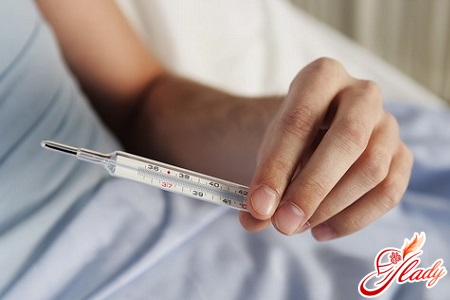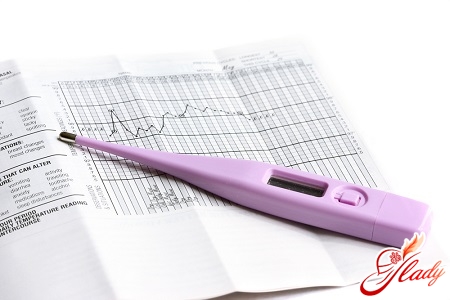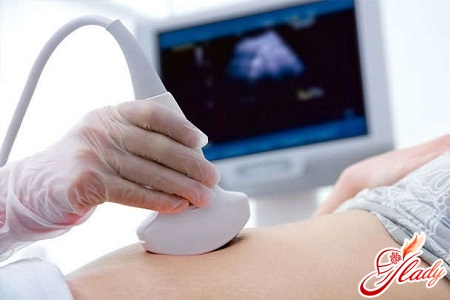
Pregnancy is a very exciting timean event, especially for those who are expecting their first child or who have had it after many years of unsuccessful attempts. But regardless of the degree of health and the level of awareness of the nuances of expecting a child, any woman during pregnancy is sensitive to the slightest changes in her body and listens to the processes occurring inside. The state of pregnancy is accompanied by the appearance of a lot of "deviations" that are non-standard for an ordinary person, which are considered normal for a woman in this position. The most common of them are nausea, a strong need for a certain product or surprising combinations of them, painful sensations in unexpected parts of the body. A temperature of 37 during pregnancy is also considered normal in the absence of other symptoms that clearly indicate a cold or inflammatory nature of the ailment. But all of this, naturally, increases the concern of the expectant mother, so you need to have a clear idea of when during pregnancy you should calmly continue to lead your usual way of life, and in which cases you should immediately seek help from specialists.

Common causes of temperature increase in the first trimester
During early pregnancy,When measuring body temperature, the thermometer often stops at 37 degrees. Since everyone is accustomed to considering such an indicator as the beginning of some disease, the pregnant woman begins to show great anxiety. Responsibility for the health of the baby she is carrying makes a woman overly suspicious during pregnancy; she is ready to contact a doctor for every important reason in her opinion. Such behavior is to some extent justified, since caring for a small organism is the main task of the expectant mother, but it is still not worth showing excessive anxiety and spending most of the pregnancy period in doctors' offices. During pregnancy, an increase in temperature is not always a cause for concern and a reason to go to the hospital. Such an "anomaly" is due to the fact that during this period there is a radical hormonal restructuring, the body's heat transfer slows down, and the temperature begins to rise, compensating for the general condition of the body. In addition, a woman prepares to bear a baby under the influence of the hormone progesterone, which is responsible for the attachment of the fertilized egg to the uterus, and for stopping its contractions, and even prepares the breasts for milk secretion. An elevated temperature during pregnancy is caused by the production of a large amount of this, one of the most important, hormones. Depending on the temperature and weather conditions outside, some features can also be identified. In summer, when the air warms up strongly, the body temperature during pregnancy can also rise. Expectant mothers need to be careful when sunbathing and drink more fluids to restore the body's water balance. In winter, when a significant part of the time has to be spent indoors, the temperature during pregnancy can rise due to a dry microclimate and the lack of a constant flow of fresh air. A woman in an "interesting" position should spend more time outside, and if the weather does not allow it, she should ventilate the room more often. Whichever of these factors is relevant, it should be remembered that all of them are not a serious cause for concern, body temperature during pregnancy in the range of 37 to 37.4 degrees, especially in the first trimester - a normal reaction of the body.
Dangerous consequences of excess temperature in pregnant women
If during pregnancy a womanthe body temperature rises, goes beyond the permissible limits and reaches 37.5 degrees or more, this is the first signal that the body of the expectant mother is infected and the health of the child is in danger. An elevated temperature in the first two weeks of pregnancy is especially scary and creates a high risk of miscarriage. In the first trimester, the baby lays down absolutely all organs and forms the life-support systems of the body. During this period, the body temperature, which has reached 38 degrees, can begin the process of developing fetal pathologies. And if this threshold is exceeded, and no action is taken to normalize the mother's condition, such negligence can lead to the occurrence of serious health problems in the child. Among the most common deviations in children that developed during pregnancy are mental retardation, muscle hypotonia, defects of the central nervous system, microcephaly and underdevelopment of various parts of the body or face. An increase in temperature to 38 degrees can signal a risk state not only for the fetus, but also for the mother. Such fever occurs in a pregnant woman and with an incorrect location of the fertilized egg - an ectopic pregnancy. In order to save the life of a woman and preserve her reproductive function, it is important to diagnose this fact in time and urgently go to the hospital for surgical intervention. An increase in temperature in the late stages of pregnancy is also dangerous and unpredictable. This can cause complications in the heart and nervous system of both the mother and the child. During this period, a high temperature can also become the initiator of placental abruption, which is fraught with premature birth and the death of the child, and, as a result, serious health problems for the woman, including infertility.
The algorithm of actions at different temperature indicators
Temperature range from 37 to 37.4 degreesis considered normal, it does not require medical intervention and when it lasts for several days. Even if a pregnant woman has all the signs of a cold: cough, headache, runny nose, you just need to monitor your condition and body temperature, since these symptoms indicate the body's natural fight against pathogens. With a good level of immune protection, the feeling of malaise will begin to subside within 24 hours, with reduced immunity, the disease will continue to develop. If the temperature threshold of 37.5 degrees is reached, the temperature should be brought down. First, it is worth trying traditional medicine methods: hot tea, honey, lemon, raspberries, cool compresses and rubbing. Of the pharmaceutical drugs, only paracetamol is allowed for use, which is considered the safest for the fetus. It is strictly forbidden to use acetylsalicylic acid and drugs based on it, since they reduce blood clotting and can cause bleeding in both the mother and the fetus. In addition, aspirin - the strongest initiator of developmental defects. If there is no positive dynamics, and the temperature has reached 38 degrees, it is necessary to urgently seek medical help at a medical institution, since such a temperature indicator is a sign of an infectious process. With timely treatment for medical help, there is a great chance to quickly block the source of the disease and strengthen the immune response, which will allow the woman to recover in a shorter time and create a protective barrier on the way to the fetus in time.
The most important stage in a woman's life is motherhood
For a woman carrying a child,the primary task is to create ideal conditions for its growth and development, therefore, during pregnancy, the expectant mother strives to do everything necessary to protect her baby from unfavorable factors. Already in the first weeks of pregnancy, many women have concerns about whether they are doing everything right and whether everything is okay with the fetus. The emergence of various fears during pregnancy is primarily due to hormonal changes in the body, but even when the level of hormones comes to a more or less balanced state, women do not stop meticulously studying the changes in their body and paying attention to any little things. Being very suspicious by nature, they often raise the alarm because of common ailments, or even not having them at all. An increase in body temperature is the most common "disease" of women in a delicate position. But any specialist will confirm that during pregnancy you should not be afraid of thermometer readings up to 37.4 ° C, and will advise not to worry. Of course, you need to monitor the increase in temperature during pregnancy. But it is absolutely not worth elevating this to the rank of a primary task and completely devoting yourself to the process of searching for any deviations. It is better to use the free time that appears during pregnancy to read books that you did not have time for before, to pursue your favorite hobby or to study a new profession. Motherhood is such a wonderful period of life that you should not waste it on meticulous self-analysis of the state of the body, inventing non-existent diseases, exaggerating the danger to health and, moreover, unnecessary self-medication. During pregnancy, everything should be in moderation, and then the joy of bearing a baby will be a constant companion throughout all 9 months.









